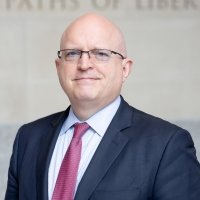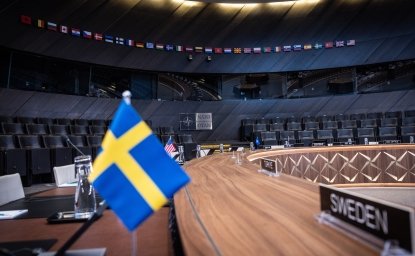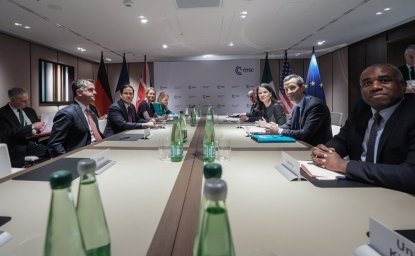As NATO leaders gather in Washington for the historic summit marking the alliance's 75th anniversary, Secretary General Jens Stoltenberg has identified three primary agenda items: bolstering allied defense and deterrence; support for Ukraine; and strengthening NATO's global partnerships.
The Chair of the Wilson Center's Global Europe Program, Ambassador (ret.) Philip T. Reeker, provides an overview of the summit. He covers the agenda, the importance of partnerships with countries in the Indo-Pacific and the Middle East, the focus on funding, and the upcoming transition in NATO leadership from Jens Stoltenberg to Dutch Prime Minister Mark Rutte.
Video Transcript
-
NATO at 75: Alliance Celebrates Anniversary with Eye on Ukraine and the Future
Guest

Albright Stonebridge Group, Department of State (ret.)

Global Europe Program
The Global Europe Program is focused on Europe’s capabilities, and how it engages on critical global issues. We investigate European approaches to critical global issues. We examine Europe’s relations with Russia and Eurasia, China and the Indo-Pacific, the Middle East and Africa. Our initiatives include “Ukraine in Europe”—an examination of what it will take to make Ukraine’s European future a reality. But we also examine the role of NATO, the European Union and the OSCE, Europe’s energy security, transatlantic trade disputes, and challenges to democracy. The Global Europe Program’s staff, scholars-in-residence, and Global Fellows participate in seminars, policy study groups, and international conferences to provide analytical recommendations to policy makers and the media. Read more

Explore More
Browse Insights & Analysis
Trump Speaks with Putin in Effort to End Russia-Ukraine War

From Partner to Ally: Sweden’s First Year in NATO

“Security, Europe!”: Poland's Rise as NATO's Defense Spending Leader
